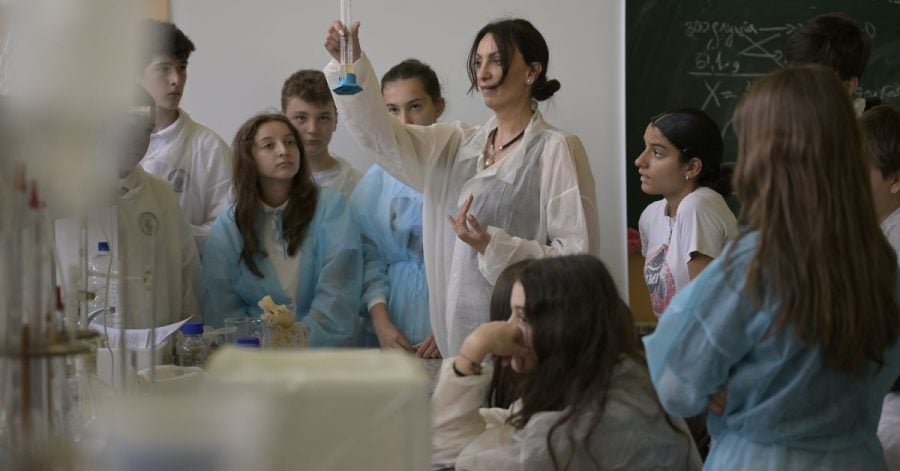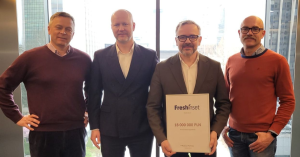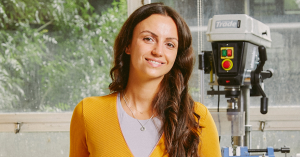In an era where science and technology are pushing the boundaries of human capabilities, biohacking emerges as a new frontier at the intersection of both science and technology and their effects on human biology.
At its core, biohacking is about taking control of one’s biology, using a combination of self-experimentation, data analysis, and advanced interventions to achieve extraordinary results.
While at first the term might conjure up images of sci-fi cyborgs or futuristic experiments, the reality is that biohacking is already present in various aspects of our daily lives.
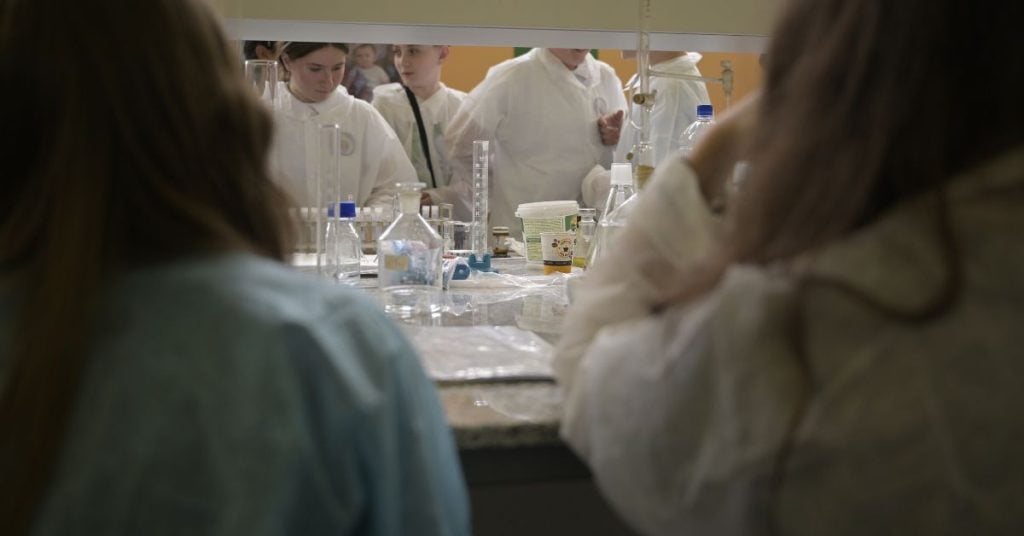
What is biohacking?
The term “biohacking” has taken on many different meanings since its emergence near the beginning of the 21st century. What “biohacking” means to each biohacker depends on the context, but in general it refers to Do-It-Yourself (DIY) biology, or experiments which happen outside of the typical industrial or academic settings.
Nowadays, biohacking is also a part of the citizen science movement that encourages open exchange of materials, data, and protocols, and has a symbiotic relationship with the open source electronics movement and freely available online biology workshops.
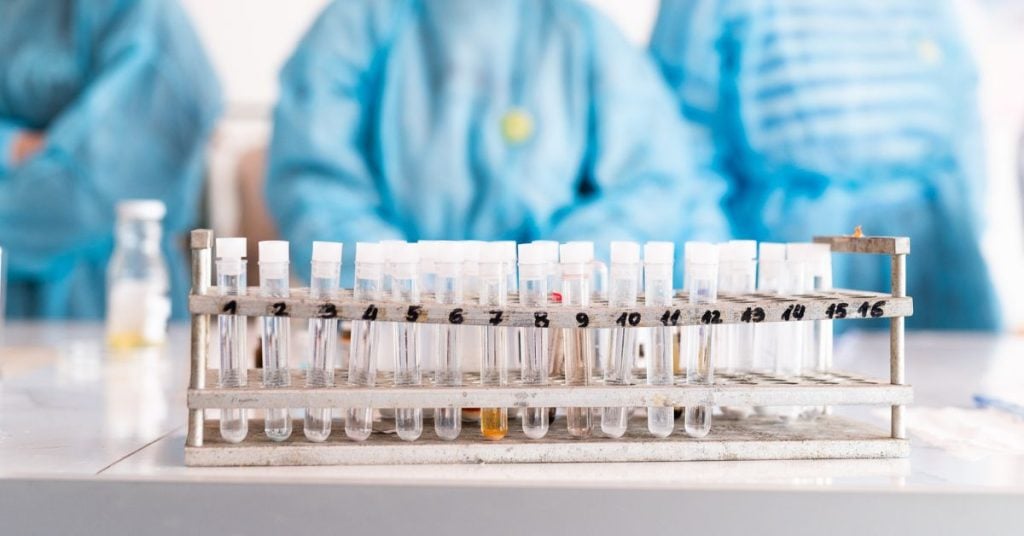
The biohacker movement has gained momentum, and despite the stigma of this field, is now being hailed as a possible solution to many of society’s growing list of existential crises – some biohackers have set their sights on solving global problems like urban pollution using homebrew biological systems.
Biohacking in the Balkans
While the concept of a biohacking lab is a novelty in the Balkan region, production spaces such as Biotehna in Slovenia have been active for almost a decade and developing a community of biohackers and gathering artists, scientists and all of those from the general public that wish to research and investigate correlations between nature and technology.
This year, North Macedonia and its capital of Skopje also decided to follow suit by launching its first biohacking lab, supported by UNDP North Macedonia, UNICEFMK, and the City of Skopje.
Located in the Marie Curie secondary vocational school, Skopje’s biohacking laboratory has a particular focus – reusing and repurposing biowaste. Why Skopje? Being a city that has a long history of dealing with environmental challenges – from earthquakes, floods, and air pollution, waste management nowadays is another pressing matter on its agenda.
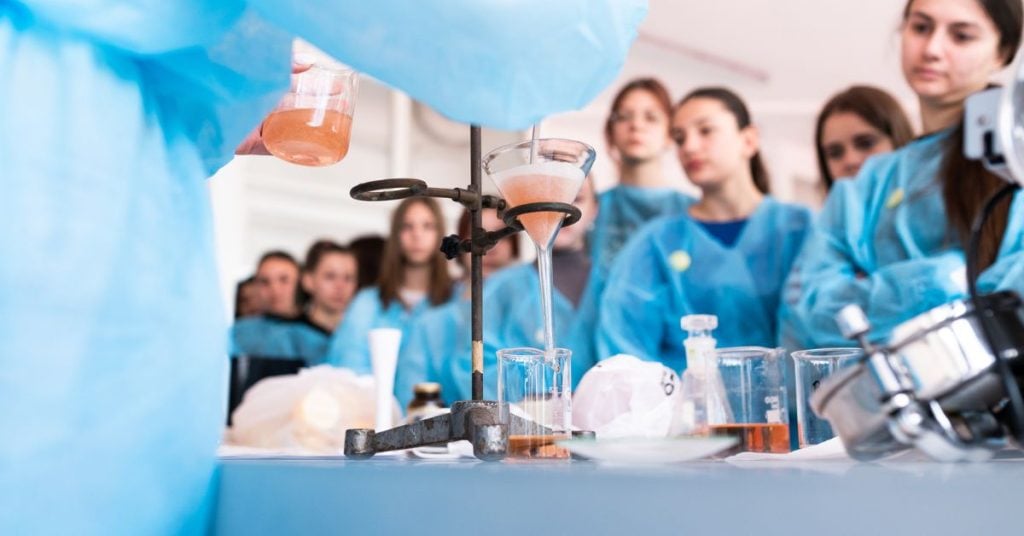
Therefore, the lab also aims to solve such issues, while also creating entrepreneurial opportunities through citizen science. So far, for the short that it has been operating, the lab has welcomed several hundreds visitors, including students, biotechnology startups and science enthusiasts.
Additionally, in May UNDP piloted the first challenge for startups working with biotech, and saw more than 12 innovative solutions developed to deal with pressing environmental issues.
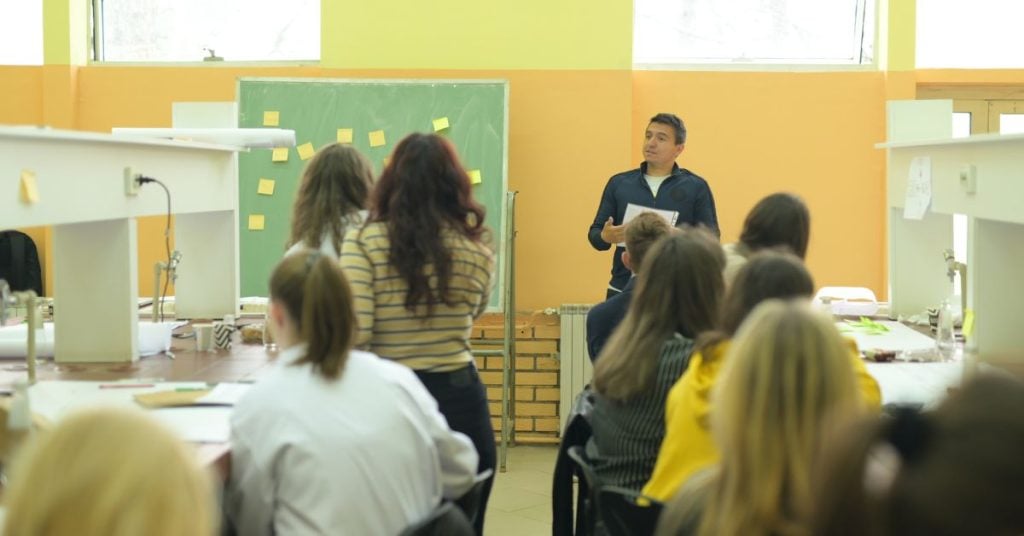
Using biowaste as a resource
According to the National Waste Management Plan 2020 – 2030, 45.3 percent of the total municipal waste generated in 2016 was biowaste (organic waste) and most of it ends up in landfills, emitting greenhouse gasses and causing an array of environmental challenges for its local communities.
At the moment, scientists affiliated with the biohacking lab are also working with 30 companies to transform biowaste into viable products, and are welcoming all of those that want to test out their ideas of how biotechnology can solve different environmental challenges.
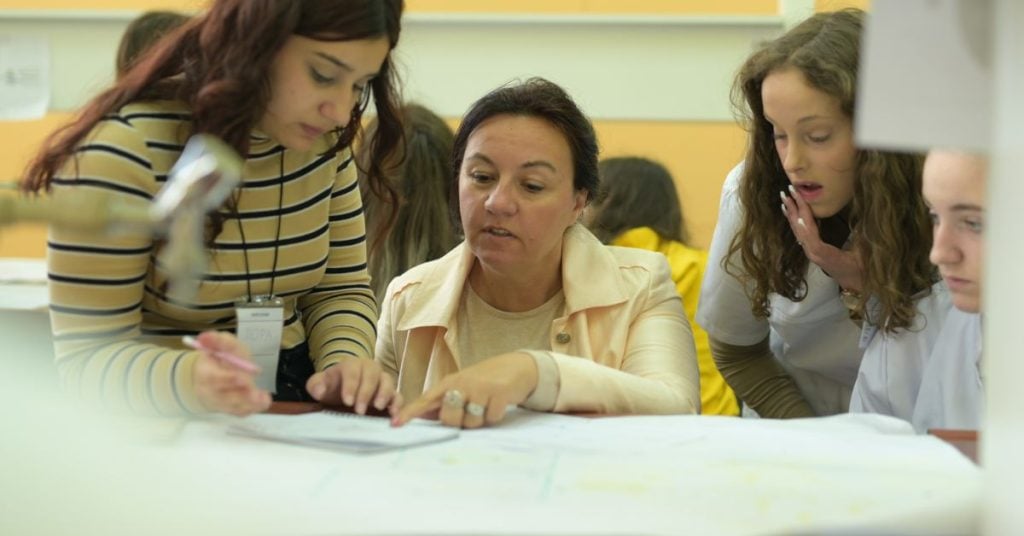
Veselina Shojleska is one of them. A student at the Faculty of Technology and Metallurgy in Skopje, Shojleska wants to solve the problem with young children that refuse to eat fresh vegetables.
“We have gained experience in terms of how we can more easily get the raw materials, how we can more easily get in touch with companies regarding our idea with companies and restaurants. Our idea is to use waste from the factories that make green salads and make a drink that will be above all of nutritional value and will be much more attractive to the youngest because they make the biggest problem for eating fresh vegetables and in one way we solve the problem of parents and children for their easier consumption,” Shojleska says.
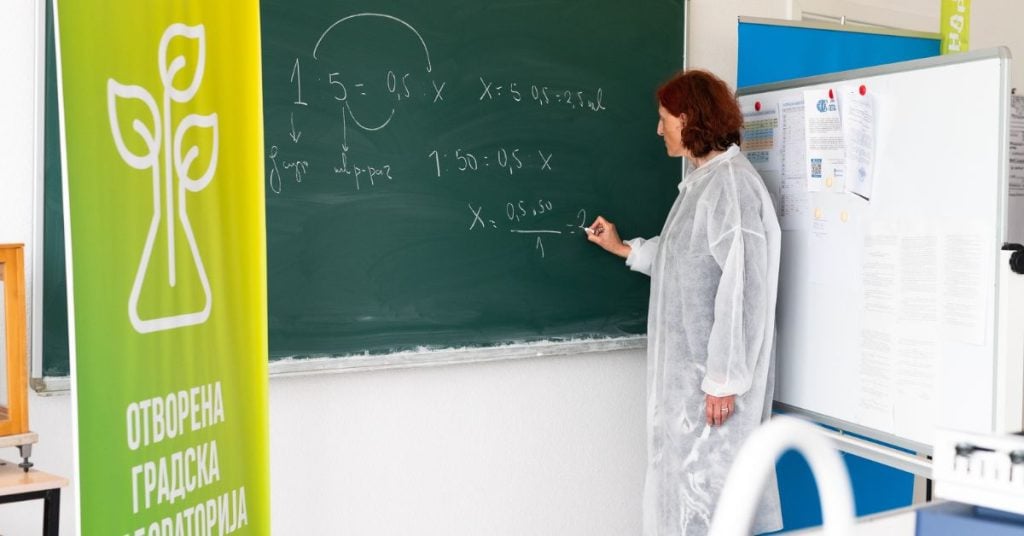
Entrepreneurs such as Valentina Mitrova, who manages a company working on truffle production, have also used the lab to get new insights into the process.
“The professors helped with the production itself, we normally have some ambiguities, and these are prestigious laboratories where we can get the help in the future for the production of the products,” Mitrova said.
Food tech entrepreneur Nikola Angelovski is working on a project that aims to promote self-sustainable production at a local level.
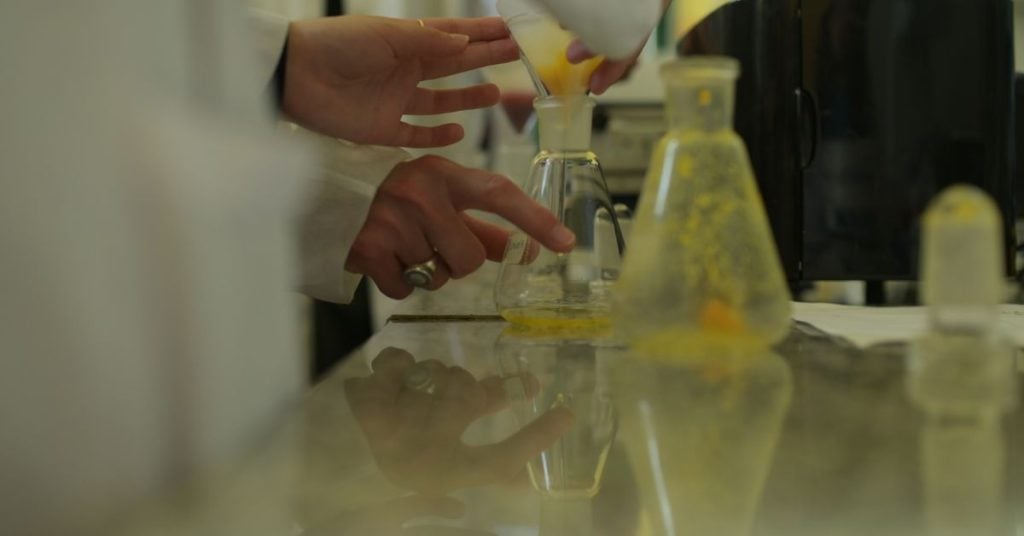
“Taking into account that there is a food deficit in the world, there is a need to look for alternatives through biowaste and to use the nutritional value more and more. The waste shouldn’t be used only for burning, but that we should use it in our daily lives. I plan to do this process through a startup called “Ecopos”, which will use rice husk as a base for all of its products,” Angelovski explained.
From environmental solutions to business solutions
These ideas and up-and-coming projects that solve different environmental challenges have also attracted the attention of several angel investors.
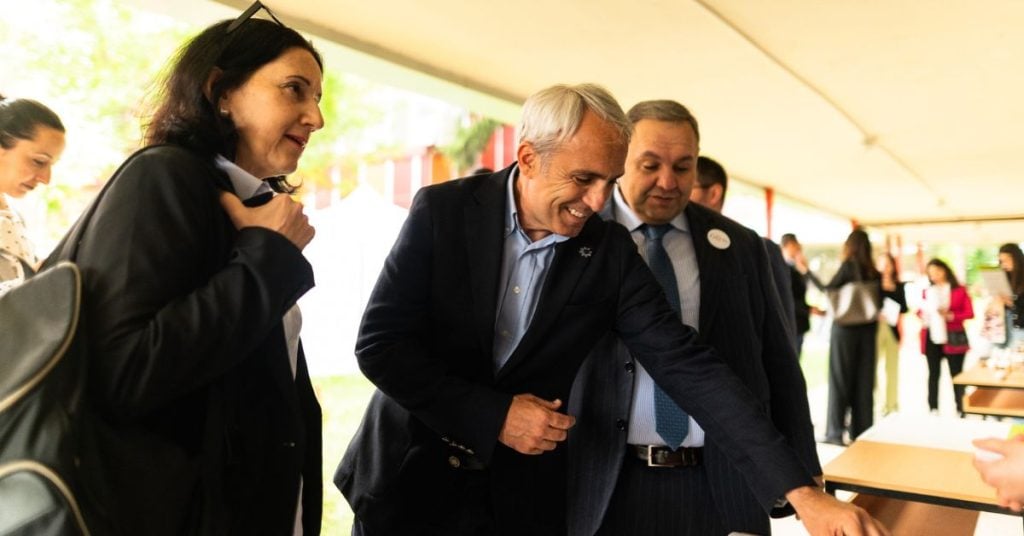
“I’ve seen several business angels who have already noticed the products and I already see that here is a great interest from private businesses and I hope that this pilot project that is successfully implemented will be also applied by other cities and other municipalities and that every part of the country will be able to establish this kind of biohack laboratories,” said Zoran Gligorov, secretary of the city of Skopje, adding that hopefully this will also further motivate young scientists and students to pass on these experiences to their communities.
Furthermore, events such as the startup challenges that have been done in the lab and the Demo Day can help the projects gain traction and attention from investors, while allowing scientists and students to freely develop their ideas.

